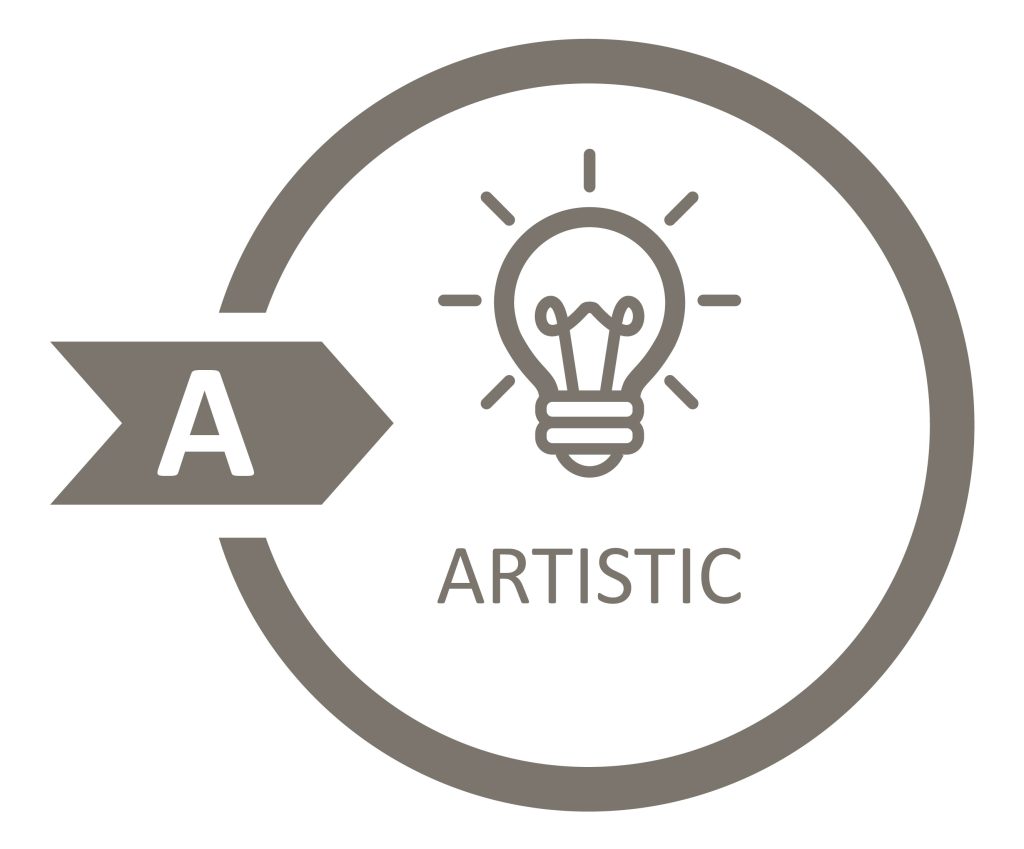
Have a creative or artistic bent? A career in the Arts, Audio/Video Technology, and Communications career cluster might be right for you. These careers focus on designing, producing, exhibiting, performing, writing, and publishing multimedia content including visual and performing arts and design, journalism, and entertainment services.
Trends and highlights of careers in Arts, A/V, and Communication
- Large economic impact: The arts contribute more than $800 million a year to U.S. economic output, according to a 2019 report from the U.S. Department of Commerce.
- Job opportunities: Almost 3 million people work in arts, A/V technology and communications fields in the U.S.
- Freelance opportunities: Freelance work is common in many of these careers. Some jobs require frequent travel and have irregular work hours.
- Shift from print to web: As demand for printed media trends downward, news organizations focus more on developing web-based content like podcasts, video, and social media.
- New technologies: Online streaming services for movies, TV, and music have changed how people consume media worldwide— accounting for tens of billions of dollars in revenue.
- Large exports: The United States exports more goods and services from this sector than it imports, usually in the form of movies, music, television shows, and video games.
- Growth areas: Other growth areas include web publishing and streaming, the development of a regional video industry, and arts-related retail.
Would a career in arts, audio/visual technology and communications be a good fit for me?
Are you a creative thinker? Have some technical abilities with media-related equipment, and enjoy collaborating with others? Also, importantly, do you possess the qualities of self-discipline and perseverance? These are some of the critical qualities needed to succeed in these fields. If you are considering a career in this cluster, here are some points to keep in mind:
A strong portfolio and the ability to network with other professionals is often important in these fields, as jobs may be highly competitive, and some are filled through personal connections rather than advertised job openings. Experience may be more valued than training in some fields.
While much of the economic activity in these fields is concentrated in major cities, such as Los Angeles for TV, movie, and music industries; New York for theater productions; and Nashville for the music industry, arts activity takes place in every community across the country.
What are some careers in arts, a/v technology and communications?
Artists, designers, writers, technicians, and others produce the music, movies, books, sculpture, dance, television broadcasts, and video games that provide the entertainment and enrichment that contribute to our culture and enjoyment. Radio and television broadcasts, Hollywood movies, and major concert tours are some of the glamorous settings of the Arts, A/V Technology, and Communications career cluster. But this sector also includes community theaters, print shops, art galleries, local music venues, film festivals, art fairs, and more.
Take a look at the list below to learn about arts, audio/video technology and communications careers at different levels of education. Click any link to find out more about a career, including average wages, employment projections, training requirements and more.
High school education
Short-term training (usually from a few months to about two years)
Makeup Artists, Theatrical and Performance
More advanced training or bachelor’s degree
Agents and Business Managers of Artists, Performers, and Athletes
Want to see more?
See list of all careers in this career cluster
